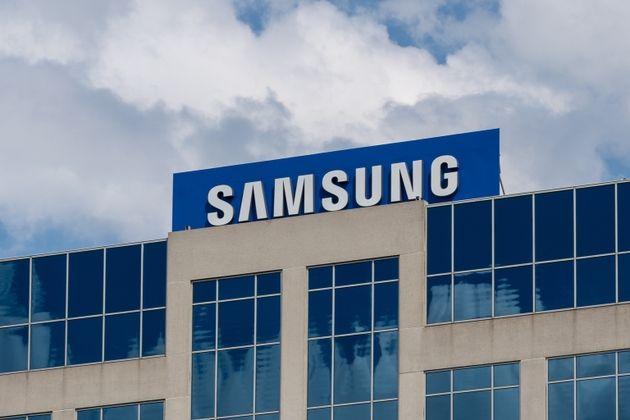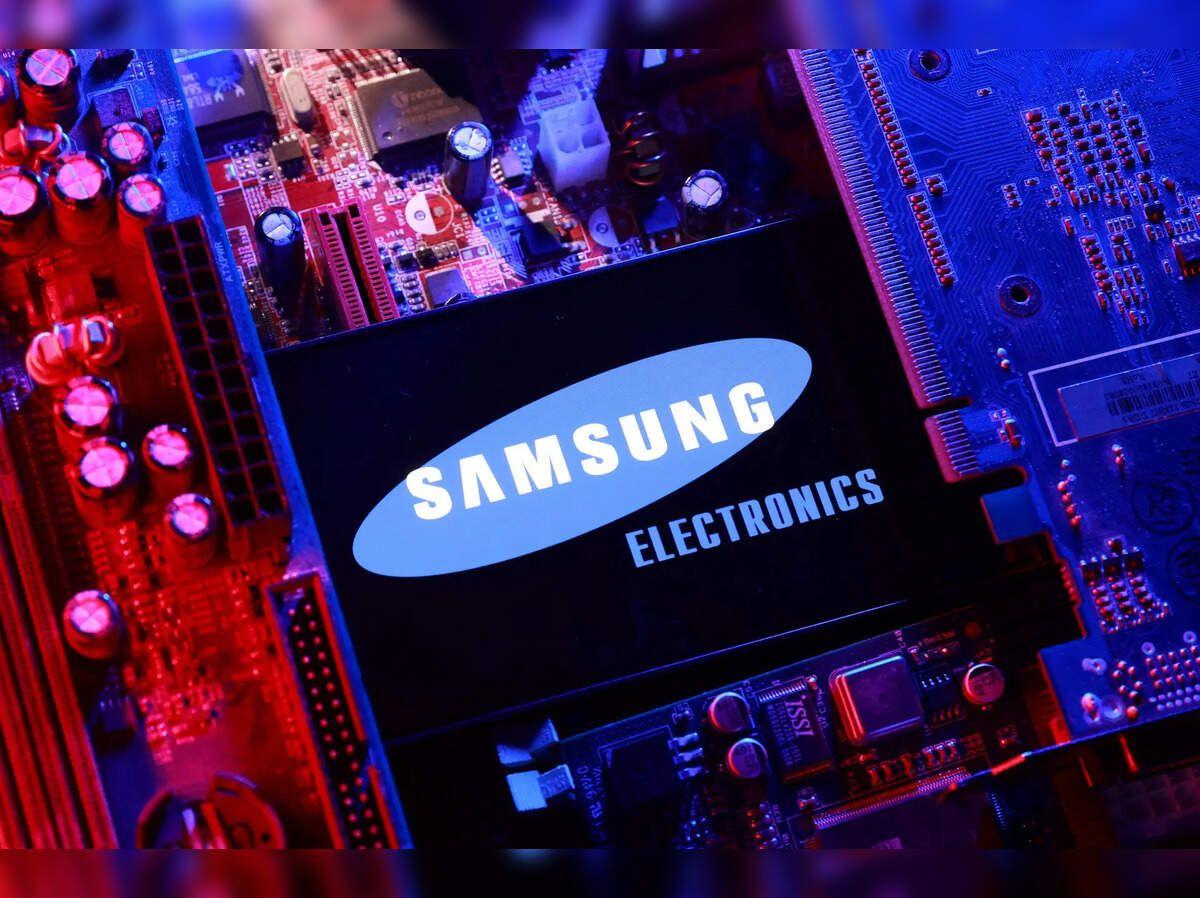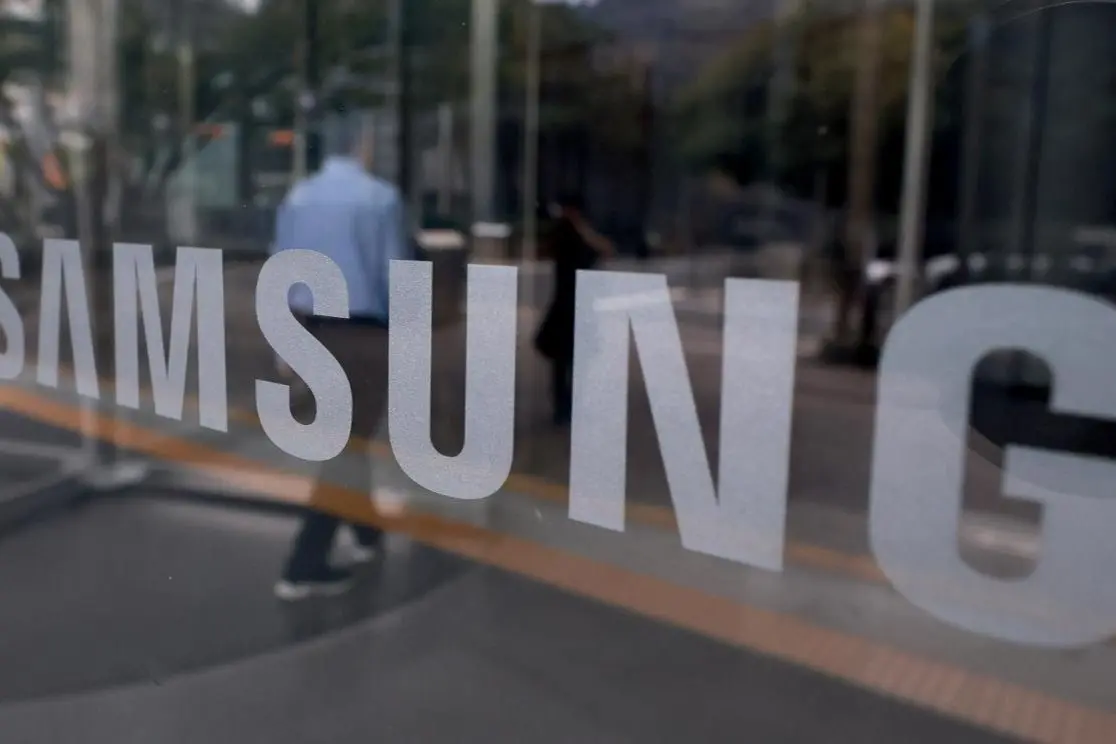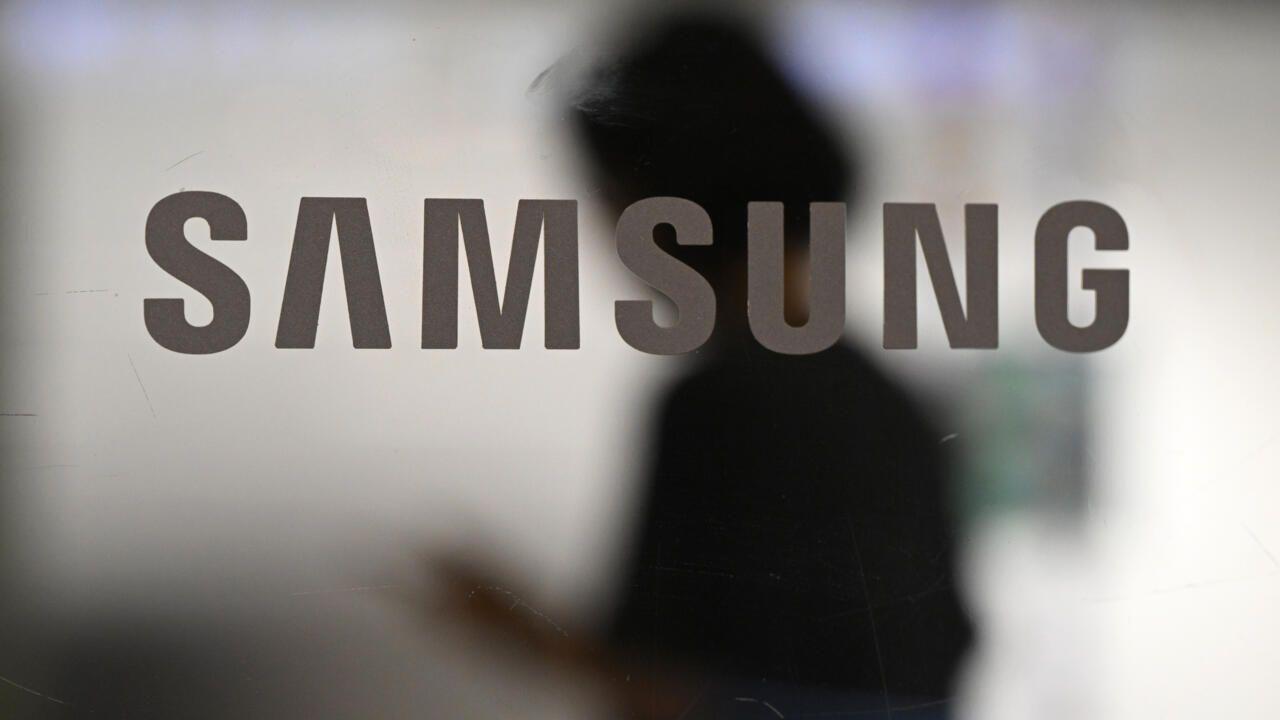Samsung Posts Record Q3 Results as AI Boom Drives Memory Chip Sales to All-Time High
5 Sources
5 Sources
[1]
Samsung posts 32% profit rise on-year in third quarter
Seoul (AFP) - South Korean tech giant Samsung Electronics posted on Thursday a 32 percent rise in profits on-year for the third quarter, driven by AI-fuelled market demand for memory chips. The artificial intelligence industry has provided a major boost to South Korea's Samsung and SK hynix, two of the world's leading memory chip makers, as their products have become indispensable for AI infrastructure. Samsung's latest earnings report marks a sharp turnaround for the company, which saw its profits plunge more than 50 percent on-year in the second quarter due to the impact of US curbs on AI chip exports to China. "Operating profit increased to 12.2 trillion won (US$8.5 billion). The Device Solutions (DS) Division reported a 19 percent increase in sales quarter-on-quarter, with the Memory Business setting an all-time high for quarterly sales," the company said in its earnings statement. Its smartphone division logged an 11 percent rise quarter-on-quarter in revenue "due to the successful launch of new foldable phones and solid flagship sales", it added. "Looking ahead to Q4, the rapid growth of the AI industry is expected to open up new market opportunities for both the DS and DX Divisions," it said, referring to its chips and smartphone units. The current boom in AI has pushed up prices and shipments of conventional NAND and DRAM memory chips, alongside soaring demand for high-bandwidth memory (HBM) chips used in AI servers. Samsung said it would invest 40.9 trillion won in its semiconductor facilities this year to meet this growing demand. "The DS division will focus on transitioning to advanced processes and reinforcing existing production lines to meet demand for high-value products," the company said. Following the earnings report, Samsung's shares broke a previous record, jumping more than five percent to 105,800 won in the first 30 minutes of trading. Share surge "This quarter's performance is a clear result of the memory market boom," Hwang Min-seong, research director at market analysis firm Counterpoint, told AFP. "In the DRAM segment, it has significantly narrowed the gap with SK hynix, the current leader and if this trend continues, we think Samsung could regain DRAM leadership as early as next quarter," he added. DRAM is a type of memory chip that temporarily stores data, essential for devices like computers, smartphones and AI servers. Against the backdrop of AI market opportunities, Samsung -- a bellwether on South Korea's benchmark Kospi index -- has seen its shares surge more than 90 percent since the beginning of this year. Samsung signed in July a $16.5 billion deal with Tesla under which it will provide the electric car maker with AI6 chips through the end of 2033. The agreement is expected to provide a major boost to Samsung, which has faced headwinds in its foundry business, lagging rivals SK hynix and Taiwan's TSMC in the race for cutting-edge artificial intelligence chips. The foundry business involves contract-based manufacturing of chips designed by other companies.
[2]
Samsung reports 32% rise in operating profit and predicts continued AI-related growth
SEOUL, South Korea -- Samsung Electronics on Thursday reported a 32.5% increase in operating profit for the third quarter, driven by rebounding demand for its computer memory chips, which the company expects will continue to grow on the back of artificial intelligence. The South Korean technology giant set a new high in quarterly revenue, which rose nearly 9% to 86 trillion won ($60.4 billion) for the July-September period, fueled by increased sales of semiconductor products and mobile phones. Samsung, which has dual strength in both components and finished products, said it expects the demand driven by AI to further expand market opportunities in coming months. SK Hynix, another major South Korean chipmaker, also reported a record operating profit of 11.4 trillion won ($8 billion) on Wednesday, which it also described as AI-related growth. Samsung's operating profit of 12.2 trillion won ($8.6 billion) in the last quarter marked a 160% increase from the previous quarter, when it said its semiconductor earnings were weighed down by inventory value adjustments and one-off costs related to technology export restrictions on China. Samsung's semiconductor division posted 7 trillion in operating profit for the third quarter, with the company reporting strong sales in high bandwidth memory chips, which are used to power AI applications. "The semiconductor market is expected to remain strong, driven by ongoing AI investment momentum," the company said in a statement. The company said an advanced version of its high-bandwidth memory chips, the HBM3E, is "currently in mass production and being sold to all relevant customers," while samples of its next-generation product, the HBM4, are being shipped to key clients.
[3]
Samsung beefs up advanced chip output after memory chip sales hit record high - The Economic Times
Samsung Electronics expects AI-driven demand for memory chips to exceed its supply and plans to boost production of advanced chips. After weak quarters, it reported revenue from its key memory chip business and stronger profits. The firm will expand output of high-bandwidth memory chips and raise capital spending to meet growing global AI needs.Samsung Electronics expects demand for memory chips for the global AI infrastructure build-out to far outstrip the company's supply, and said on Thursday it will focus on mass producing its most advanced chips to capitalise on the boom. Samsung posted record quarterly revenue from its key memory chip business on Thursday, an impressive turnaround, after disappointing performances in the past several quarters as it struggled to catch up with competitors in the AI chip race. The world's top memory chipmaker said it plans to significantly expand production of high-bandwidth memory (HBM) chips, a key building block of artificial intelligence chipsets, and sharply increase capital spending next year to meet rising demand. "It is expected that customers' demand for the next year will exceed our supply, even considering our investment and capacity expansion plan," Kim Jaejune, a Samsung memory chip business executive, told analysts on its post-earnings call. He said memory chip demand would be "much stronger and faster than usual," accelerating price increases. Its shares rose as much as 5.3% after its results, outpacing a 0.9% gain in the benchmark KOSPI. Chip shortage expected to persist Samsung's bullish comments echo the robust outlook offered by its rival SK Hynix, which on Wednesday said it expected an extended chip "super cycle" spurred by the AI boom, as it had already sold out all of its chips for next year. The turnaround reflects the unexpected boom in conventional chip prices, with supply squeezed by the industry's shift to producing advanced AI chips, while demand is rising for data centres. Kim said the shift was constraining supply of memory for mobile phones and personal computers "and the supply limitations are expected to persist into next year." Samsung's chip business, its main cash cow, posted an operating profit of 7 trillion won ($4.92 billion) in the third quarter, up 80% from a year earlier. Its memory chip business reported record revenue of 26.7 trillion won, up from 22.3 trillion won a year ago. Current-generation HBM3E chips are being sold to "all related customers," Samsung said, which suggested it has joined rivals such as SK Hynix in supplying the latest 12-layer HBM3E chips to artificial intelligence chip leader Nvidia. "Looking ahead to Q4, the rapid growth of the AI industry is expected to open up new market opportunities," Samsung said. Tech giants including OpenAI have in recent months announced multi-billion-dollar plans to invest in AI infrastructure despite uncertainty about returns, sparking investor questions as to whether the AI boom may be the next big bubble. Samsung has been slow to capitalise on soaring demand for AI chips that benefited its rivals like SK Hynix, a key memory chip supplier to Nvidia, but the recent boom in commodity chip sales has been a boon to the South Korean tech giant that also makes smartphones, TVs, home appliances and flat screens. Investors are looking for signs that Samsung is narrowing the gap with SK Hynix with the next-generation HBM4 chips. Samsung said its HBM4 samples are being shipped to key clients, and it will focus on the mass production of HBM4 products next year, betting on rising demand. It has already lined up customers for its "significantly expanded" HBM bit production plan for 2026 from this year, Kim said. "However, as additional customer requests continue to come in, we are internally reviewing the possibility of further capacity expansion," he said. Samsung posted 12.2 trillion won in operating profit for the July to September period, in line with its estimate of 12.1 trillion won. ($1 = 1,421.4800 won)
[4]
Samsung's memory chip unit sales see record high in Q3 amid AI demand
Samsung Electronics (OTCPK:SSNLF) said its Memory business achieved record-high quarterly revenue amid strong AI demand and noted that going forward in 2026, the unit will focus on the mass production of its most advanced chips, HBM4 products. Third quarter revenue Strong AI demand is fueling record-high memory revenue, particularly for HBM3E and server SSDs, and will continue to drive sales as AI adoption grows. Samsung plans to focus on mass production of advanced HBM4 chips, scale out its HBM sales base, and expand capacity in response to projected demand growth. Samsung aims to leverage AI smartphone launches, seasonal promotions, form factor innovations, and premium models to expand market share and achieve year-over-year growth.
[5]
Samsung Electronics on track for recovery upon memory uptrend - The Korea Times
Samsung Electronics said Thursday that its sales and operating profit for the third quarter stood at 86.1 trillion won ($60.45 billion) and 12.2 trillion won, respectively, marking the company's largest quarterly sales. The improvement was led by the solid recovery in its memory chip business amid the sharp growth in demand for artificial intelligence (AI) accelerators and server storage. Brisk sales of foldable and flagship smartphones also contributed to the overall recovery in its profitability. According to the company's regulatory filing, third-quarter sales jumped 8.8 percent from 79.1 trillion won a year earlier, while operating profit surged 32.48 percent from 9.2 trillion won during the same period. Notably, its chipmaking Device Solutions (DS) division saw a sharp rebound. The division posted 33.1 trillion won in sales and 7 trillion won in operating profit, up 13 percent and 79.5 percent year-on-year, respectively. It was the DS division's largest quarterly revenue, buoyed by expanded sales of AI-specific high-bandwidth memory (HBM) 3E chips and strong demand for Double Data Rate 5 (DDR5) solid-state drives for servers. The company said profitability also improved, driven by higher average selling prices and reduced one-off inventory-related costs from the previous quarter. Particularly, Samsung noted that HBM3E chips are now being mass-produced and supplied to all customers, while samples for the most advanced HBM4 have been shipped to every client that requested them. The foundry business achieved a record in quarterly orders, driven by strong demand for advanced process technologies. It added that it began mass production of products based on a 2-nanometer Gate-All-Around process. The Device Experience (DX) division, which manages mobile phones, home appliances and other devices, posted 48.4 trillion won in sales and 3.5 trillion won in operating profit, up 8 percent and 3 percent year-on-year, respectively. Driven by strong sales of the Galaxy Z Fold7, its smartphone business improved in both revenue and operating profit, achieving 34.1 trillion won in sales and 3.6 trillion won in operating profit. However, slowing TV markets, a seasonal downturn for home appliances and U.S. tariff impacts led the home appliance business to post a 0.1 trillion won operating loss. Samsung Display, a wholly owned subsidiary, posted sales of 8.1 trillion won and operating profit of 1.2 trillion won. Sales rose 1.21 percent from 8 trillion won a year earlier, but operating profit fell 20 percent from 1.51 trillion won during the same period. Looking ahead, Samsung said it expects new market opportunities for both its DS and DX divisions in the fourth quarter due to the rapid growth of the AI industry. In the memory segment, the company said it will focus on handling the growing demands for AI services and servers by expanding sales of HBM3E and high-capacity DDR5 DRAMs for servers, as well as expanding sales of high-performance NAND storage. Samsung said its facility investment for 2025 is expected to reach about 47.4 trillion won. The DS division will account for 40.9 trillion won, while Samsung Display will invest around 3.3 trillion won. The DS division plans to focus on upgrading to advanced process technologies and reinforcing existing production lines to meet demand for high value-added products.
Share
Share
Copy Link
Samsung Electronics reported a 32% surge in operating profit for Q3, driven by unprecedented demand for AI memory chips. The company achieved record quarterly revenue and plans massive capacity expansion to meet growing AI infrastructure needs.
Samsung Achieves Record Financial Performance
Samsung Electronics delivered exceptional third-quarter results, posting operating profit of 12.2 trillion won ($8.6 billion), representing a 32% increase year-over-year
1
. The South Korean tech giant achieved record quarterly revenue of 86.1 trillion won ($60.4 billion), marking an 8.8% increase from the previous year2
.
Source: Seeking Alpha
This remarkable turnaround represents a sharp recovery from the second quarter, when Samsung's profits plunged more than 50% due to US export restrictions on AI chips to China
1
. The company's shares responded positively, jumping more than 5% to break previous records and reaching 105,800 won in early trading1
.Memory Chip Business Drives Growth
Samsung's Device Solutions (DS) division, which includes its semiconductor business, reported record quarterly revenue of 33.1 trillion won with operating profit of 7 trillion won ($4.92 billion), up 80% from the previous year
3
. The memory chip business specifically achieved record revenue of 26.7 trillion won, compared to 22.3 trillion won in the same period last year3
.
Source: ET
The artificial intelligence boom has created unprecedented demand for high-bandwidth memory (HBM) chips, which are essential components for AI servers and infrastructure. Samsung confirmed that its current-generation HBM3E chips are now in mass production and being supplied to all relevant customers
2
. This suggests the company has successfully joined rivals like SK Hynix in supplying advanced memory chips to AI chip leader Nvidia3
.Massive Investment Plans for AI Infrastructure
Anticipating continued growth in AI demand, Samsung announced plans to invest 40.9 trillion won ($28.8 billion) in semiconductor facilities this year
1
. The company expects total facility investment for 2025 to reach approximately 47.4 trillion won, with the DS division accounting for the majority at 40.9 trillion won5
.
Source: Korea Times
Kim Jaejune, a Samsung memory chip business executive, indicated that customer demand for next year is expected to exceed the company's supply capacity, even considering planned investment and capacity expansion
3
. The executive noted that memory chip demand would be "much stronger and faster than usual," accelerating price increases.Related Stories
Next-Generation Technology Development
Samsung is positioning itself for future growth by advancing its next-generation HBM4 technology. The company confirmed that HBM4 samples are being shipped to key clients, with plans to focus on mass production of these advanced chips in 2025
4
. Samsung has already secured customers for its significantly expanded HBM production plan extending to 20263
.The foundry business also achieved record quarterly orders, driven by strong demand for advanced process technologies, and began mass production of products based on 2-nanometer Gate-All-Around process technology
5
.References
Summarized by
Navi
[3]
Related Stories
Samsung's Q3 Profit Surge: AI Chip Demand Drives Strongest Performance in Three Years
14 Oct 2025•Technology

Samsung's Profits Soar on AI Chip Demand and Higher Prices
31 Jul 2024

Samsung Electronics Q4 profit triples to record high as AI demand fuels memory chip shortage
29 Jan 2026•Business and Economy

Recent Highlights
1
Google Gemini 3.1 Pro doubles reasoning score, beats rivals in key AI benchmarks
Technology

2
ByteDance's Seedance 2.0 AI video generator triggers copyright infringement battle with Hollywood
Policy and Regulation

3
ChatGPT cracks decades-old gluon amplitude puzzle, marking AI's first major theoretical physics win
Science and Research





